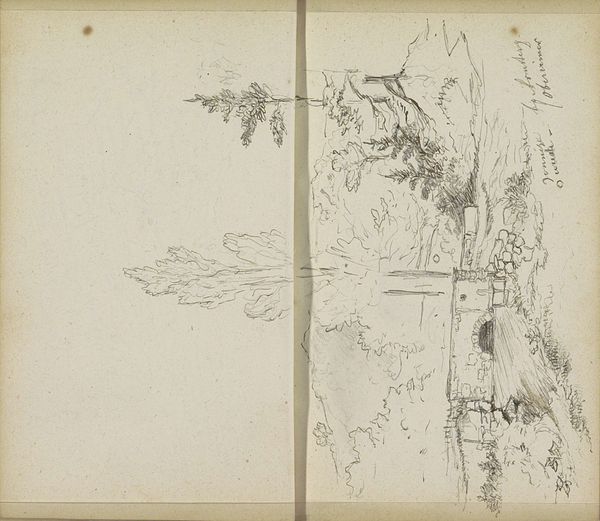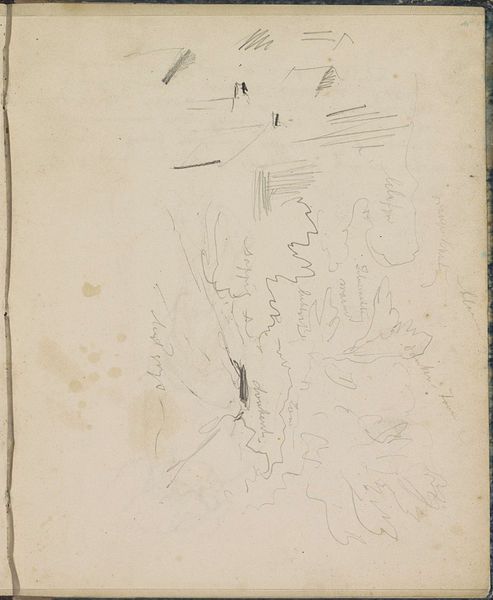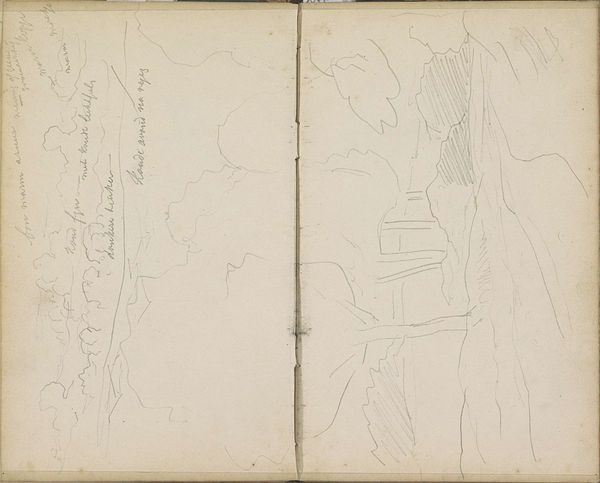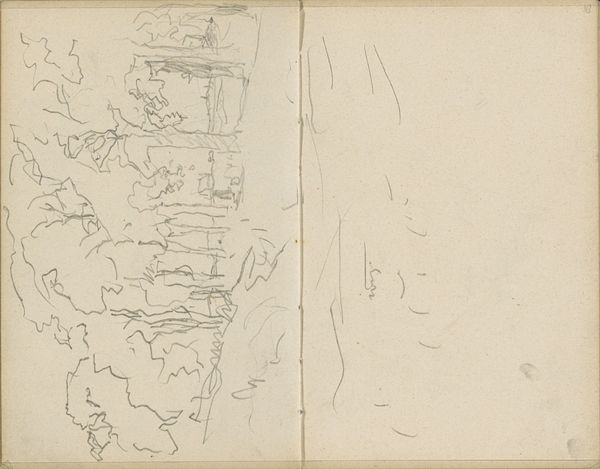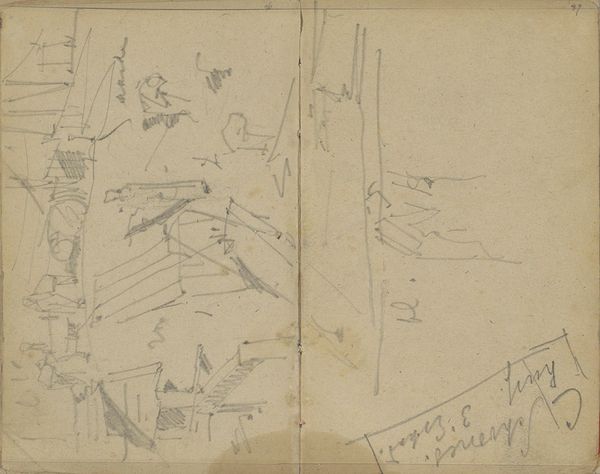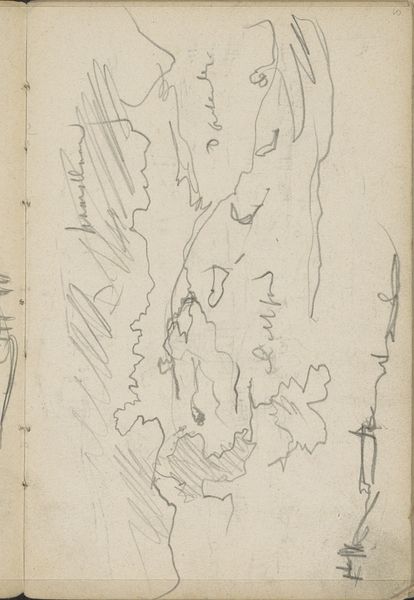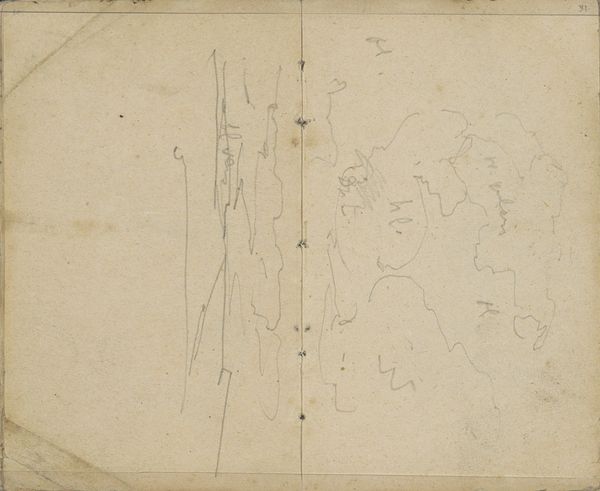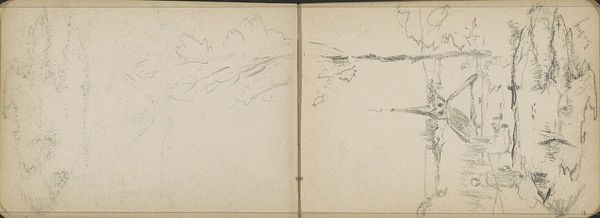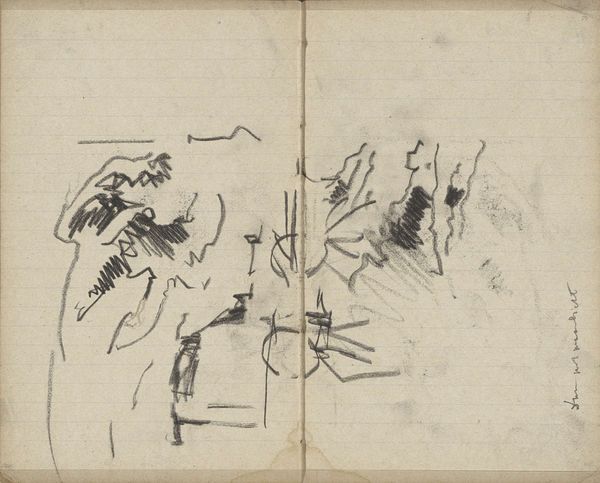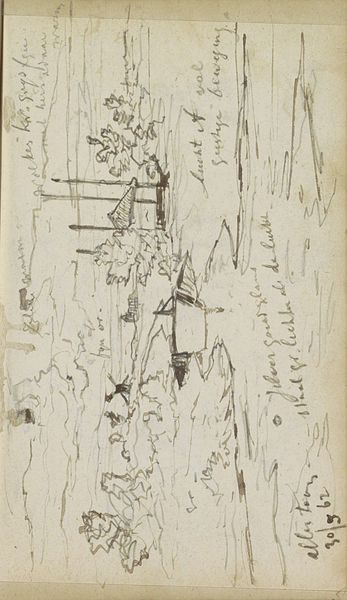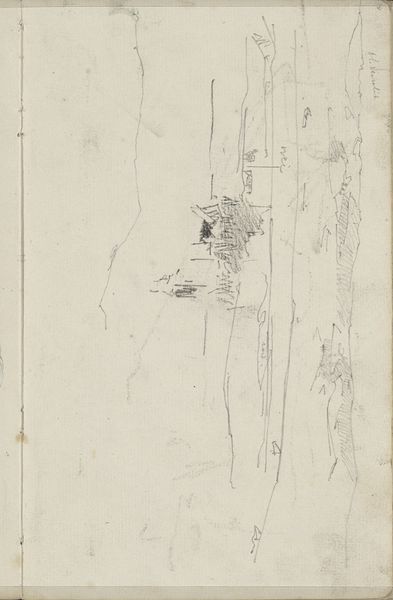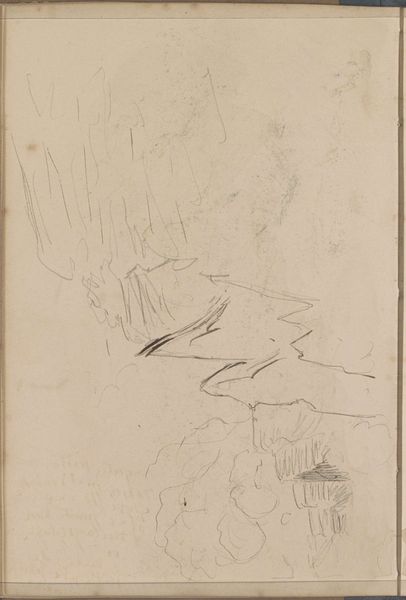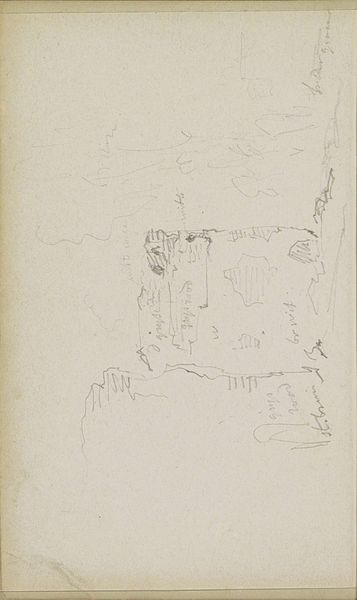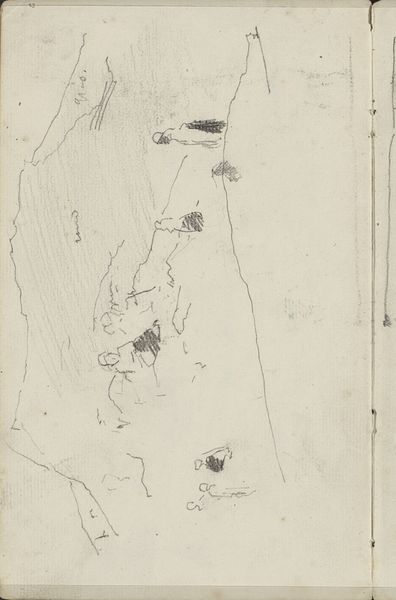
drawing, paper, pencil
#
drawing
#
impressionism
#
landscape
#
paper
#
pencil
Copyright: Rijks Museum: Open Domain
Editor: We're looking at "Landschap," a landscape drawing by George Hendrik Breitner, created between 1881 and 1883. It’s a pencil on paper work, and the sketch-like quality gives it an unfinished, almost fleeting, feel. How do you interpret this work? Curator: For me, Breitner’s "Landschap" speaks to the shifting relationship between humans and the natural world in the late 19th century. Urbanization was rapidly changing the landscape, and this sketch, with its loose lines and suggestive forms, can be read as a reflection of that anxiety and the search for a lost connection. Do you see how the sketch seems to capture a moment of transition, almost disappearing before our eyes? Editor: Yes, I can see that. It feels like a memory fading. What about the Impressionist style—how does that fit into the socio-political context? Curator: Impressionism, broadly speaking, valued subjective experience and capturing the ephemeral qualities of light and atmosphere. However, considering it from a social perspective, Breitner seems to capture how that individual subjectivity is deeply affected by political changes in 19th-century Amsterdam, like increasing urban populations. Breitner suggests how one comes to see oneself against this environment in this specific period. Does that resonate? Editor: Definitely! It's interesting how a seemingly simple landscape drawing can reflect such complex social anxieties. It definitely makes me consider art’s function to record such societal developments and individual reflections. Curator: Precisely. It shows us how the artistic expressions of the time can be interpreted as personal reflections and articulations of greater society as a whole. Thank you for that observation!
Comments
No comments
Be the first to comment and join the conversation on the ultimate creative platform.
